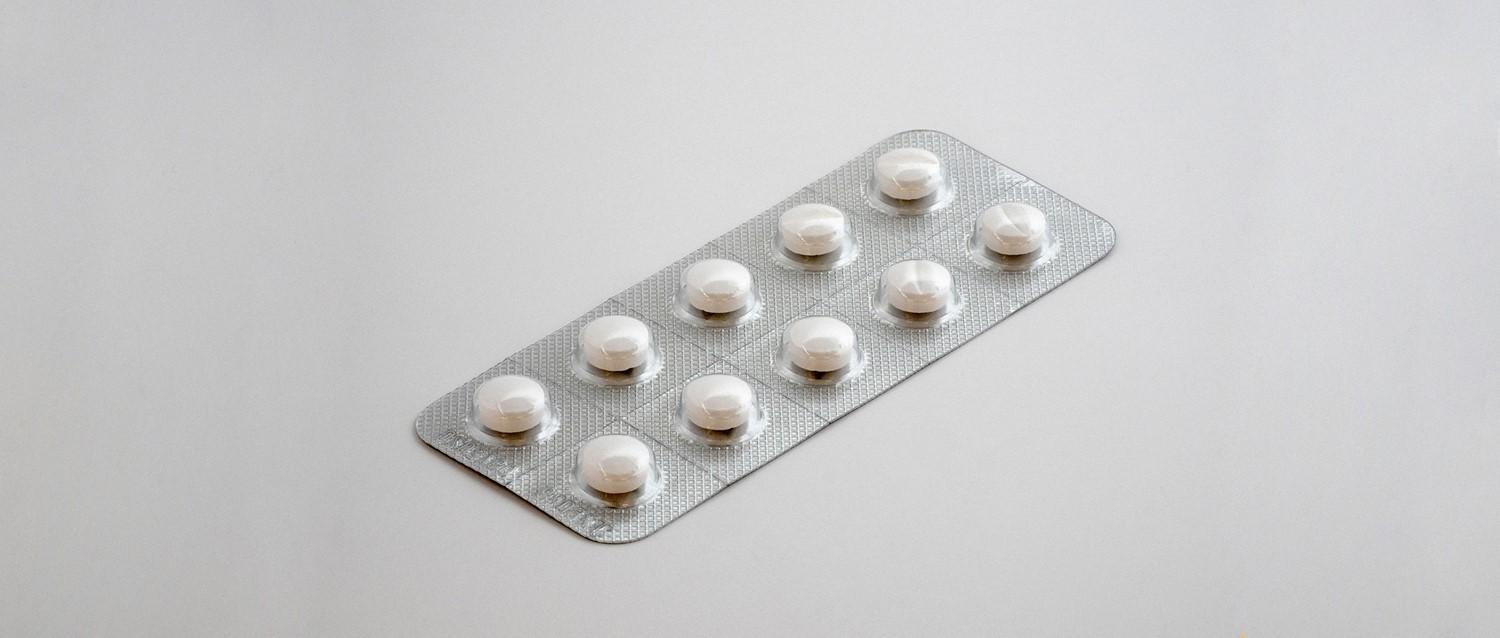
Where to get medication in an emergency
Peer reviewed by Dr Colin Tidy, MRCGPLast updated by Dr Sarah Jarvis MBE, FRCGPLast updated 1 Jun 2021
Meets Patient’s editorial guidelines
- DownloadDownload
- Share
- Language
- Discussion
According to one survey, a shocking 1 in 10 people visit A&E to get medicine if they run out. We all live busy lives, but emergency services are under huge strain and too many visits of this sort can cause serious delays to treatment for people who are seriously unwell.
If you're taking repeat medication, you'll know when you collect your prescription exactly when you're going to run out. So how can you avoid adding to the strain on overstretched A&E services?
In this article:
GPs in England alone issue over a billion prescriptions a year. There are about 34,000 of us, which means every GP is signing off almost 30,000 prescriptions a year each. They're dispensed by 11,700 pharmacies - so every pharmacy dispenses about 85,000 prescriptions a year.
With so many prescriptions being issued,10% of people visiting A&E when their medication runs out adds up to an awful lot of extra pressure on emergency departments across the country. For most people, running out of medication is entirely preventable with some careful planning and forward thinking.
Continue reading below
How to prevent medication emergencies
Stay on top of your prescriptions
The easiest way to prevent medication emergencies is to stay on top of your prescriptions and know what you’ll need and when. When your GP or other healthcare professional prescribes your medication, they will explain how much you need to take and when. There will also be instructions or a label on the medication with your exact dose and when to take it.
When you receive your medication, note down how much you have been prescribed and how long it will last you. If it's a repeat medication, make a note on your calendar or set yourself a reminder to arrange another prescription at least a week before your medication is due to run out.
Keep your medications in a safe place and make sure you know where they are at all times, especially if you are taking them out and about with you or you have children who may be able to access them unless you keep them secure.
Set up repeat prescriptions
These days GP practices prefer to arrange repeat prescriptions online and discourage patients from phoning to arrange them. Services like Patient Access allow you to view your medical records, share them securely with a doctor at the hospital, or book a GP or practice nurse appointment. And if you're using regular medication on repeat prescription, you can order it on the Patient Access app at the touch of a button.
Your prescriptions are sent straight to your 'nominated pharmacy' electronically. Many people have a pharmacy they've gone to for years - but if you decide you want to change your nominated pharmacy, you can do that easily yourself using the Patient Access app. While you may choose to collect your prescription from your pharmacy, they may be able to deliver them to your home if you contact them.
What's more, you can change your pharmacy temporarily, using the same feature on the app. That means that if you go on holiday in the UK and realise you need a repeat, you can simply change your nominated pharmacy and collect the prescription from there instead.
Most pharmacies ask people to order their repeat prescription at least two days in advance because there are various checks your prescription will have to go through in order for your medication to be dispensed safely.
Plan ahead
If you need to contact your GP to talk about your treatment, adjust your medication or have health checks before you can receive another prescription, plan ahead. Many GP practices are extremely busy, especially during the COVID-19 pandemic, and you might have to wait for an appointment. Factor this in when planning your medication, rather than leaving it to the last minute.
Many practices now have in-house practice pharmacists, who can deal with medication queries as well as offering medication checks. They're experts in medication and many have additional qualifications which allow them to prescribe medication or update repeat prescriptions for certain conditions. If you need a health check, ask at your practice whether they have a practice pharmacist who can offer this.
Plan ahead if there are upcoming bank holidays which may delay you getting your medication. And do bear in mind any extra time which may be needed at the pharmacy end to get hold of your medication if it's a new or less commonly prescribed medicine.
If you're going on holiday - and especially if you are going abroad - make sure to factor in any additional medication you might need, including whether your prescription will run out whilst you are away. Always check that you will be able to bring your medication with you or if you will have to make any special arrangements. In some countries, pharmacists can dispense a wide range of medicines without prescription - pack your repeat prescription slip when you travel, just in case.
Struggling to manage your meds?
Back to contentsIf you're taking multiple medications, it can be difficult to stay on top of all of your prescriptions, especially if they run out at different times. Taking your medication as instructed is vital to get the most out of your treatment.
If you're struggling to take your medication when you're supposed to, consider asking your GP or pharmacist for advice. They may be able to simplify your medication routines, conduct a medicine use review or give you some tips to make it easier to adhere to your treatment.
Lots of people struggle with memory and might find it difficult to remember to order, pick up or take their medication. As well as scheduling reminders and noting in your calendar, it might also be worth asking a friend, family member or carer to help you to manage your medications. Alternatively, your GP may be able to change you to 'dosset' medications, which are dispensed in weekly blister packs by your pharmacist. This can make it much easier to stay on top of your medication if you take multiple daily treatments or if you find it hard to keep track.
In addition to managing your own appointments and medications, Patient Access offers proxy access, which allows you to use the app on behalf of a loved one (with their permission if they're adult, obviously). Alternatively, you can give permission for a loved one to order medication or book appointments on your behalf.
Continue reading below
What to do if you're caught short
Back to contentsIf you find yourself short of medication and need it in a hurry, a UK community pharmacist can often issue an emergency prescription. Obviously, they'll need to carry out some safeguard checks. In most cases, they'll need to see you face to face and find out why you need the medicine urgently.
They'll usually need proof that you've been prescribed the medicine before. For instance, you can take along a copy of your repeat prescription, or the finished box or bottle of tablets, which will include your name and the date they were issued. The pharmacist will also need to ask some questions to be satisfied that this is the correct dose of medicine for you.
If they're satisfied, they'll be able to issue you with:
Up to 30 days' worth of most medicines (apart from controlled drugs like morphine-based and other strong painkillers).
A single tube of cream or ointment.
Or a single inhaler.
This service isn't available on the NHS, so the pharmacist will charge you for it. It's always good to know there's a fall back in case of disaster, but clearly the ideal situation would be to avoid running out in the first place.
Medication emergencies
Back to contentsOf course, there are some medications that you do need in an emergency like the morning-after pill or post-exposure prophylaxis (PEP) for HIV. Both of these should be available at sexual health clinics. The morning-after pill is also available through a pharmacist, at supermarkets and at high street pharmacies like Boots and Superdrug.
It is important to use emergency contraception as soon as possible after unprotected sex. If you get your emergency contraception via a sexual health clinic, they may also be able to supply you with regular contraception, either by fitting a long-acting reversible contraceptive (LARC) like the coil or implant, or supply you with the contraceptive pill.
PEP is a drug which can prevent HIV infection after potential exposure to the virus. Like emergency contraception, you need to use PEP as soon as possible after you think you've been exposed to HIV (for example, after unprotected sex), preferably within 24 hours but definitely within three days of exposure.
PEP is only available on prescription. You usually can't get it through your GP but it is offered at sexual health services and HIV clinics. You may have to check their website or give them a call to make sure that it is available or to book an appointment. They will also be able to arrange follow-up HIV tests, pre-exposure prophylaxis (PrEP), HIV treatment and condoms. A&E departments also carry a supply of PEP so this is one case where it's a good idea to go to A&E for medication.
Thanks to My Weekly where this was originally published
Patient picks for Medicine information

Treatment and medication
Should you worry about steroids and their side effects?
Steroids have had a bad press over the years - a combination of their side effects and misuse of anabolic steroids by bodybuilders. But we actually make steroids in our own bodies - and used as your doctor recommends, they can be effective and safe.
by Dr Sarah Jarvis MBE, FRCGP

Treatment and medication
Antibiotic resistance: a hidden health crisis
If you have a bacterial infection, your doctor may prescribe antibiotics. However, unnecessary use of antibiotics can weaken their effectiveness, leading to antibiotic resistance and making future infections harder to treat. Doctors and other appropriately qualified health professionals will only prescribe antibiotics where there is a critical need.
by Victoria Raw
Continue reading below
Article history
The information on this page is peer reviewed by qualified clinicians.
1 Jun 2021 | Latest version

Ask, share, connect.
Browse discussions, ask questions, and share experiences across hundreds of health topics.

Feeling unwell?
Assess your symptoms online for free
Sign up to the Patient newsletter
Your weekly dose of clear, trustworthy health advice - written to help you feel informed, confident and in control.
By subscribing you accept our Privacy Policy. You can unsubscribe at any time. We never sell your data.